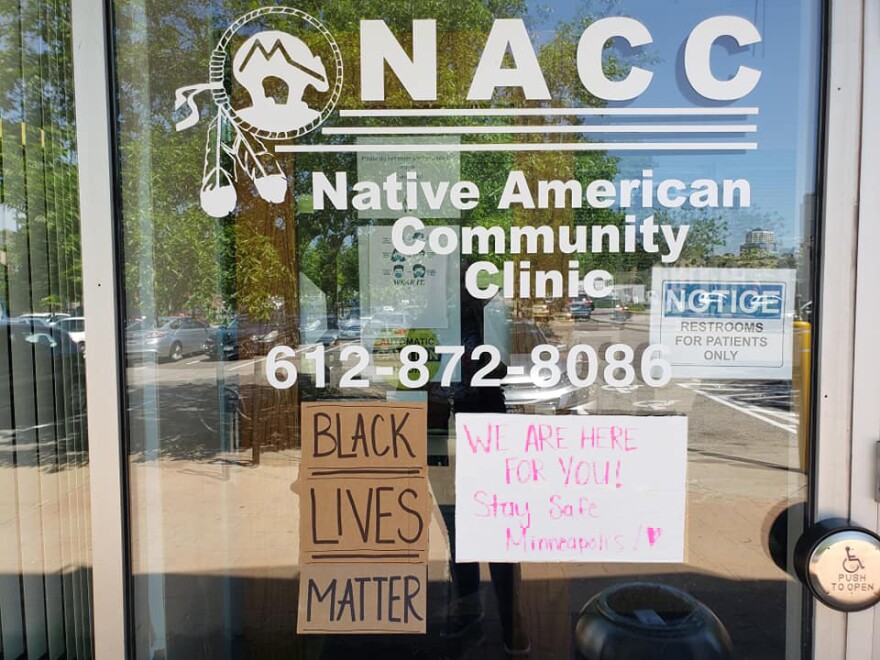Around the middle of May, an article came out in Indian Country Today warning that, even though Native Americans in Minnesota have largely escaped the brunt of the COVID-19 pandemic, a quote - dire forecast for June has housing, health care and homelessness advocates bracing for the worst - unquote.
At the time, they were talking about easing of stay-at-home restrictions, and concerns about what that could mean in Minneapolis for one of the largest populations of urban Natives in the country in general - and - at Little Earth housing - perhaps the densest Native living situation in the country.
All that was before May 25 and the death of George Floyd.
In the expressions of anger, rage and grief that followed Floyd's death at the hands of a Minneapolis police officer, some protests flamed into rioting and arson, and a number of small businesses and non-profits, including many that serve communities of color, were damaged or destroyed, including an American Indian nonprofit youth center called Migizi.

Not far from the heart of that neighborhood at Lake Street and Hiawatha Avenue, just blocks away onFranklin Avenue, is the Native American Community Clinic.
CEO Dr. Antony Stately grew up near Migizi, a place that he credits as one of the foundations of the man he is today.
The killing of George Floyd and the events that have followed have touched him, his clinic, and his community in ways that he's still processing.
But for now, he says, all he can do is, with his staff, double down as an organization on what he and is staff can do at this specific space and place. The Native American Community Clinic, called NACC for short, is working hard partner with city, state, and sister organizations to expand their COVID-19 testing, as he says there hasn't been significant investment yet in testing Native communities.
Even so, the issues of police brutality and racial injustice are familiar and painful ones to the Native community in Minneapolis, even as they're grieving the losses of places and spaces they called home or depended on. Next time, we'll continue our conversation with Dr. Antony Stately as he struggles with the complicated grief of identifying with the Black community and at the same time, mourning the loss of a part of his childhood.







